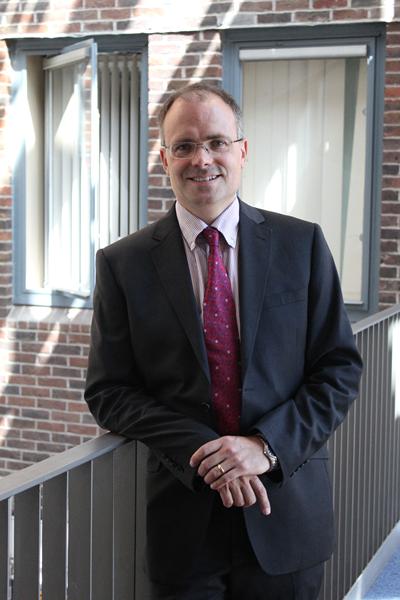Southampton scientist to lead UK’s Quantum Technology quest

Professor Peter Smith from the University of Southampton has been chosen to share in a £12m investment to help the UK lead the world in quantum science and technologies.
Professor Smith, Associate Pro Vice-Chancellor International and Professor of Optoelectronics, has been awarded a Quantum Technologies Fellowship by the Engineering and Physical Sciences Research Council (EPSRC) to support his world-leading quantum technology research that will help realise the country’s potential.
Quantum technologies promise future dramatic changes in the technological capabilities in several key areas, including secure communications, metrology, sensor technologies, simulation and computation.
Professor Smith, who leads the Quantum Integrated Nonlinear Technologies for Enabling Stable, Scaleable, Engineered Commercial Exploitation (QuINTESSEnCE) research project, said: “This fellowship will develop optical components for low cost and efficient wavelength conversion, which provides a way to change the ‘colours’ of single photon, offering breakthroughs in telecommunications, imaging and quantum science.”

Announcing the Fellowships, Professor Philip Nelson, EPSRC’s Chief Executive and former Pro Vice-Chancellor of the University of Southampton, said: “These Fellowships are a key part of the UK’s National Quantum Technologies Programme; they will allow our current and future research leaders in the field to research, discover and innovate. They will push the quantum technologies agenda forward, make new collaborations both to source wider research expertise to overcome technical barriers, and to engage with the industry partners who will potentially utilise these technologies.”
Minister for Universities and Science, Jo Johnson said: “Pioneering researchers from across the UK are investigating game-changing applications for quantum technology, from advanced communications to improved cancer detection and navigation services. We want Britain to be the best place in Europe to innovate, and this £12 million investment in UK research will support the next generation of scientists and secure our leadership in world-class quantum research.”